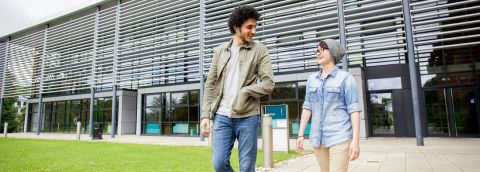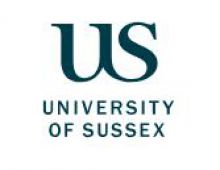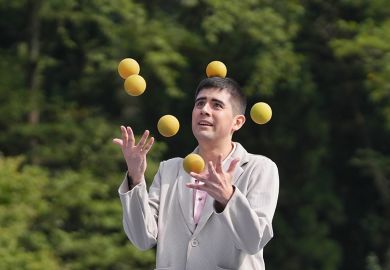An inquest into the death of an exceptionally talented PhD student has highlighted the complex mental health challenges facing postgraduates and their universities.
Josie Jolley, a doctoral student in the University of Sussex’s geography department, took her own life last September, four days after her 25th birthday, while suffering from anxiety and depression.
An inquest at Brighton and Hove City Coroner’s Court heard that Ms Jolley had experienced “many occasions when events were extremely traumatic and very difficult to overcome”.
Her doctoral research was on the subject of homelessness – something she had directly experienced. She had been in an “intimate relationship” with her first PhD supervisor, a relationship that was disclosed to the university and ended just over a year before she died. And in December 2019, she alleged she had been raped; the case was investigated by the Metropolitan Police but the Crown Prosecution Service decided not to prosecute.
The coroner, Veronica Hamilton-Deeley said that she did not consider these troubles to be “directly causative” of Ms Jolley’s death “but I do think she had a lot going on”.
“To suggest that [Ms Jolley] is a victim, that she is so vulnerable she could be taken advantage of and cannot triumph in her own decisions is to denigrate her,” the coroner said.
The inquest also heard that Ms Jolley was worried about her academic work and about her mother, who was diagnosed with cancer in May 2020.
The coroner said that Ms Jolley, who wished to pursue a career in academia, “received a great deal of good, careful support from the university”, which sometimes amounted to several texts and calls a day from the counselling and GP centres, but Ms Jolley frequently refused to engage with these services.
Regarding her academic work, Ms Hamilton-Deeley said: “She was working on a very serious and sensitive subject, which would, if completed, have been seminal.”
Jayne Aldridge, director for the student experience at Sussex, who gave evidence at the inquest, said: “We are desperately sad about what happened to Josie. She was a bright student who had worked so hard during her many years at Sussex.
“Our thoughts continue to be with her family and friends. If any of our students are upset by what they have heard reported from the inquest we strongly encourage them to talk to our trained staff in the Student Life Centre. Please do not delay.”
In an obituary, Ms Jolley’s PhD supervisors since August 2019, Divya Tolia-Kelly and Simon Rycroft, had described her as “unquestionably the brightest and most talented postgraduate who has ever come through the geography department at the University of Sussex”, adding that she was “always positive, hard-working, constantly humble and open to new ideas”.
“Academically, Josie’s talents manifested in achievements way beyond her level as a PhD student in her second year of research,” they wrote.
“Her sole-authored publication with the Transactions of the Institute of British Geographers is an achievement that most internationally published academic geographers have never attained. So was her editorial role in the Global Horizons initiative [a student journal]. Josie was also the inaugural winner of the MacQuitty Prize in recognition of a stunning performance at undergraduate level. These are mere symbols of what her potential was and what we have lost academically.”
Another former supervisor, Ben Rogaly, said that he continued to support Ms Jolley after August 2019. “Josie was the brightest student I’ve ever taught. Her loss to the university and to the wider world is immense,” he told Times Higher Education.
In an article published by the institution’s alumni magazine in 2019, Ms Jolley said that she had been homeless for five-and-a-half years when she applied for university and described winning the £10,000 MacQuitty prize as “a pivotal moment”.
“On the precipice of giving in to overwhelming desperation and alienation, I began my geography BA at Sussex. The monumental impact the geography department has rendered on my life is inexpressible. They have stoked the flames of an all-consuming desire to continue learning, and so winning the MacQuitty Prize is all the more significant because it offers both a promise and a pivotal turning point,” she said.
“It is a promise to follow this passion. It holds the economic security to pursue a PhD unreservedly, without distraction. Throughout my undergraduate degree, studying shared a precarious timetable with three simultaneous part-time jobs. Now, however, my work need not be stacking supermarket shelves at 4am or cleaning student rooms; it can be what I love. It is a privilege beyond all imagining to stand on this threshold, knowing that I can now give myself unconditionally to studying, researching and learning.”
Ms Jolley added that “it will never be a case of ‘then and now’; homelessness and the fear of returning to it will forever haunt everything I do. The difference is that this prize marks those years as worthwhile.”
ellie.bothwell@timeshighereducation.com
If you're having suicidal thoughts or feel you need to talk to someone, a free helpline is available round the clock in the UK on 116123 or you can email jo@samaritans.org. In the US, the National Suicide Prevention Lifeline is 1-800-273-8255. In Australia, the crisis support service Lifeline is 13 11 14. Other international suicide helplines can be found at www.befrienders.org.
Register to continue
Why register?
- Registration is free and only takes a moment
- Once registered, you can read 3 articles a month
- Sign up for our newsletter
Subscribe
Or subscribe for unlimited access to:
- Unlimited access to news, views, insights & reviews
- Digital editions
- Digital access to THE’s university and college rankings analysis
Already registered or a current subscriber?










